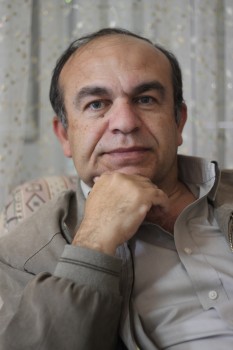Cyprus ‘diagonal talks’ hailed
But experts warn a tough negotiating period is still ahead in the island’s peace process
But experts warn a tough negotiating period is still ahead in the island’s peace process
PEACE TALKS in Cyprus took another step forward last week when Greek Cypriot negotiators visited representatives from the Turkish mainland.
The visit was part of the so-called ‘diagonal talks’, which saw Turkish Cypriot negotiators simultaneously visiting the Greek foreign ministry in Athens.
Andreas Mavroyannis’s meeting with Turkish foreign ministry undersecretary Feridun Sinirlioğlu was reportedly a success. The Cyprus Mail reported sources close to the Greek Cypriot chief negotiator as saying he was given “a very warm welcome”.
Meanwhile Kudret Özersay, Mr Mavroyiannis’s Turkish Cypriot counterpart, said his meeting with the Greek foreign ministry’s general secretary exceeded his expectations and was “the start of a healthy dialogue”.
The Cyprus Mail summarized the diagonal talks by writing: “as is often said, no news is good news. And there was no real news either from Athens or Ankara.”
THE SIGNATURE WILL BE MINE
It comes as Turkish Cypriot president Derviş Eroğlu staked his reputation on a solution by saying: “It will be me who signs it [an eventual deal] and you know what my stance is.”
His comments were interpreted to allay Turkish Cypriot fears over the extent of concessions that Mr Eroğlu might make.
As the negotiations progress, Londra Gazete asked its resident columnist and lecturer İsmail Kemal to comment on the progress of the peace talks.
“The talks will not be easy. There will be intensive and grim negotiations over six headers,” he said.
“Reciprocal political will could overcome these difficulties. The intense negotiations and the Turkish side’s flexibility on certain matters helped to start the talks again, but we must not forget the role of external parties like the United States.”
He continued: “There are a number of reasons why countries like Britain and the United States have strongly supported the talks. These include US regional interests, the need to export Israeli natural gas comfortably to the European Union and the normalization of relations between Turkey and Greece, two NATO allies.
“Britain wants the same thig because of its bases on the island and regional interests.”
ONLY SPECULATE AN OUTCOME
When asked whether a final solution was possible, İsmail Kemal said it was very difficult to make a prediction: “We can only speculate over an outcome. A serious negotiations process has begun. Regional developments have made a solution all the more pressing.
“At the end of the day, the sides have to reach agreement over the six negotiation headers. We hope they can achieve this.”
rrrrrrrrrrrrrrrrrrrrrrrrr
ismailkemal.jpg İsmail Kemal










